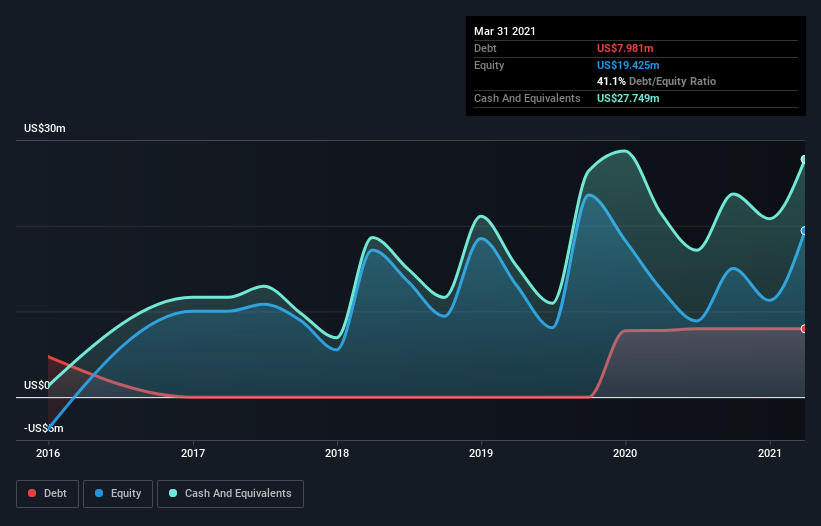Is Motus GI Holdings (NASDAQ:MOTS) Using Debt Sensibly?
Some say volatility, rather than debt, is the best way to think about risk as an investor, but Warren Buffett famously said that 'Volatility is far from synonymous with risk.' So it seems the smart money knows that debt - which is usually involved in bankruptcies - is a very important factor, when you assess how risky a company is. As with many other companies Motus GI Holdings, Inc. (NASDAQ:MOTS) makes use of debt. But the real question is whether this debt is making the company risky.
When Is Debt Dangerous?
Debt is a tool to help businesses grow, but if a business is incapable of paying off its lenders, then it exists at their mercy. In the worst case scenario, a company can go bankrupt if it cannot pay its creditors. However, a more usual (but still expensive) situation is where a company must dilute shareholders at a cheap share price simply to get debt under control. Having said that, the most common situation is where a company manages its debt reasonably well - and to its own advantage. When we examine debt levels, we first consider both cash and debt levels, together.
Check out our latest analysis for Motus GI Holdings
What Is Motus GI Holdings's Net Debt?
As you can see below, Motus GI Holdings had US$7.98m of debt, at March 2021, which is about the same as the year before. You can click the chart for greater detail. But it also has US$27.7m in cash to offset that, meaning it has US$19.8m net cash.
How Strong Is Motus GI Holdings' Balance Sheet?
The latest balance sheet data shows that Motus GI Holdings had liabilities of US$10.2m due within a year, and liabilities of US$2.20m falling due after that. Offsetting these obligations, it had cash of US$27.7m as well as receivables valued at US$74.0k due within 12 months. So it can boast US$15.4m more liquid assets than total liabilities.
This surplus liquidity suggests that Motus GI Holdings' balance sheet could take a hit just as well as Homer Simpson's head can take a punch. On this view, lenders should feel as safe as the beloved of a black-belt karate master. Simply put, the fact that Motus GI Holdings has more cash than debt is arguably a good indication that it can manage its debt safely. The balance sheet is clearly the area to focus on when you are analysing debt. But ultimately the future profitability of the business will decide if Motus GI Holdings can strengthen its balance sheet over time. So if you're focused on the future you can check out this free report showing analyst profit forecasts.
Since Motus GI Holdings doesn't have significant operating revenue, shareholders must hope it'll ramp sales of its new medical tech as soon as possible.
So How Risky Is Motus GI Holdings?
Statistically speaking companies that lose money are riskier than those that make money. And the fact is that over the last twelve months Motus GI Holdings lost money at the earnings before interest and tax (EBIT) line. And over the same period it saw negative free cash outflow of US$15m and booked a US$24m accounting loss. Given it only has net cash of US$19.8m, the company may need to raise more capital if it doesn't reach break-even soon. Overall, its balance sheet doesn't seem overly risky, at the moment, but we're always cautious until we see the positive free cash flow. There's no doubt that we learn most about debt from the balance sheet. But ultimately, every company can contain risks that exist outside of the balance sheet. We've identified 5 warning signs with Motus GI Holdings (at least 2 which can't be ignored) , and understanding them should be part of your investment process.
At the end of the day, it's often better to focus on companies that are free from net debt. You can access our special list of such companies (all with a track record of profit growth). It's free.
This article by Simply Wall St is general in nature. It does not constitute a recommendation to buy or sell any stock, and does not take account of your objectives, or your financial situation. We aim to bring you long-term focused analysis driven by fundamental data. Note that our analysis may not factor in the latest price-sensitive company announcements or qualitative material. Simply Wall St has no position in any stocks mentioned.
Have feedback on this article? Concerned about the content? Get in touch with us directly. Alternatively, email editorial-team (at) simplywallst.com.

